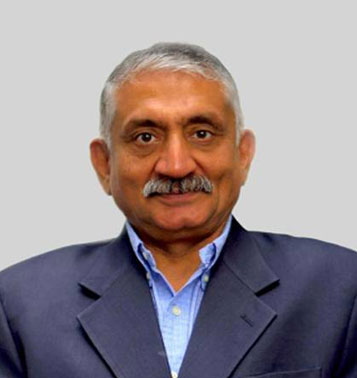PAFI VIEWS
Public Affairs- Effective Engagement with Stakeholders
Author - Ajay Khanna

Public Affairs- Effective Engagement with Stakeholders
The field of Public Affairs has traversed different paths. In the last few years, the Public Affairs professionals have evolved to become an intrinsic part of the corporate team for promoting transparent business environment and the business itself.
The role of a Public Affairs professional is very diverse. She has to operate in a complex environment. She has to give new ideas, engage with various stakeholders and be the public face of the company. She has to look at risk and crisis management. She has to plan and strategise communication and CSR. She has to watch what is happening on the policy front, stay vigilant on competition and increasingly she has to do business development, engage with industry bodies and Chambers of Commerce.
This view resonated with a consensus at the recently concluded PAFI's (Public Affairs Forum of India) 4th National- The 2017 India Public Affairs Forum.
While Public Affairs professionals are increasingly being looked at as specialists in disseminating relevant information to the stakeholders, the Forum highlighted several key issues related the role of Public Affairs professionals in providing a balanced view of issues. The forum deliberated on the roles CEOs envisage for Public Affairs professionals in their companies and the expectations that Parliamentarians have of these professionals while shaping public policy. The high energy discussion gave way to some very insightful learnings for Public Affairs professionals. .
Some insights from the discussions held at PAFI's 4th National Forum are:
First
There is a need for Public Affairs profession to be perceived as legitimate, transparent and more public than private advocacy. For this to happen, the professionals in Public Affairs must expand their role to project and advocate views with high ethical standards.
Second
Transition advocacy into a practice which is proactive, comprehensive, scientific and supports informed decision making. The panellists at PAFI's National Forum agreed that advocacy offers different perspectives to the lawmakers who otherwise might not be aware of so many viewpoints. It is required that there is an ethical dimension to every dialogue and that there is a need for unbiased information and a sustained dialogue rather than one that occurs only at the time of policy making.
Third
Role of Public Affairs professionals is critical in trust building. An effective Public Affairs professional will look for most operative solution which can strike a right balance between different ideas and different roles and can align business, society and government interests
Fourth
Public Affairs professionals need to work as 'collaborators'. They must engage with varied stakeholders and in a manner where they stay sensitive to local culture. In the current context, they need to develop advocacy tools that are aligned with values of the society in each market that they operate. This can enhance transparency and confidence of the stakeholders.
Fifth
Public Policy & Advocacy empowers policy makers to make difficult decisions. In this information age, legislators are expected not just to participate in debates but to make their party shine with an ability to present broader range of issues. With their expertise and approach, effective Public Affairs professionals need to pursue advocacy as an activity to assist legislators develop, pass and implement legislations.
Sixth
The need to engage with the Public Affairs professionals has heightened over the years. In the panel discussion comprising of all CEOs, the common opinion was that even if the organisations don't have a dedicated professional now, they would eventually need to engage professionals to effectively manage its Public Policy & Advocacy.
Seventh
Role of Public Affairs professionals has expanded to assume some degree of responsibility towards public at large. Hence professionals must enhance their skill sets to include citizen advocacy through use of technology and social media.
Lastly, Public Affairs professionals must constantly invest in upgrading effectiveness of their dialogues. This can be done when every recommendation is supported with evidence and is based on research which will help the profession get a clear differentiation between advocacy and lobbying. Public Affairs professionals should also eye at the bigger picture and must recommend those solutions which have global standing.
Public Affairs professionals are perceived as set of people who should be able to enhance the policy reach and should be able to translate ideas into actionable policies. I firmly believe that if above insights are put to practice, the profession will surely get the recognition it deserves and might evolve to become a sought after discipline in coming times.
Author
Mr. Ajay Khanna, Co-Founder, PAFI and Chief- Strategic and Public Affairs, Jubilant Bhartia Group


